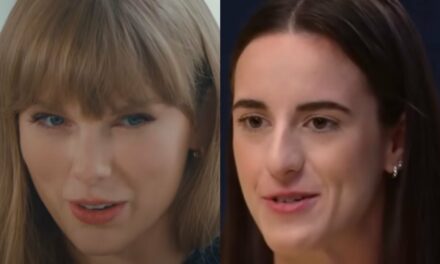We support our Publishers and Content Creators. You can view this story on their website by CLICKING HERE.

Justine Bateman did what some of Hollywood’s biggest stars refused to do.
She spoke out against Cancel Culture and attacks on free speech across Western culture.
“Justine Bateman is Over Cancel Culture” @USATODAY by @doliver8 https://t.co/F1nTNdwHtz pic.twitter.com/Ni4jZ4UyOg
— Justine Bateman (@JustineBateman) November 14, 2024
Now, she’s making the podcast rounds to expound on her views. She’s spoken to Film Threat, The Bret Easton Ellis Podcast and, most recently, “Ask Dr. Drew.”
“Tech was center stage … but the Internet flattened time, too,” Bateman began. “And then you have this mob mentality momentum which allowed this cancel culture, that’s done now, thank God, and you had not much new things emerge during that time.”
That suffocating atmosphere hit the funny bone the hardest, she argued.
“One of the things that was tamped down was satire and comedy,” she continued. “You find out the hard way that something was important when you eliminate it.”
“Satire and comedy … hem in a society, and that was not around,” she continued. “There are many other things that were missing that made our society go berserko for a little while there. I think people are hungry for it. They realize it’s a necessary nutrient of society, they’re hungry for satire.”
Both “Saturday Night Live” and late-night television handcuffed their voices during this period. Sure, both scorched President Donald Trump early and often, but they often did so based on media distortions and left out many disturbing issues that were ripe for ridicule.
Consider the woke mind virus as Exhibit A.
This seven-year-old “SNL” sketch proved the exception to the classic show’s rule.
New media personalities, like JP Sears, Tim Dillon and Ryan Long, filled in those gaps. It explains why rebel comedians became so popular over the past decade. They scored Netflix specials, sold out Madison Square Garden and, in the mind of some, helped Trump win re-election.
How? They told the jokes others refused to speak aloud.
Bateman doesn’t consider herself an “activist,” nor does she think progressive stars should be described that way. It’s just people with opinions, that’s all. Martin Luther King, Jr. was an activist, she clarifies.
She connected the rise of these virtue signalers with comedy’s decline.
“If you’re going to succeed at that, the first thing you have to do is to get rid of the comedy. So I think it was very specific. It was the revenge of the hall monitors, the party poopers, the people who don’t get invited anywhere. And, finally, they could exact their revenge … bottom line, they don’t feel any worth themselves.
“I hope that these people now can see their value without that drug,” Bateman said. “It’s sort of like an addict or an alcoholic. You’ve just taken away alcohol from all of these people. Now, they’re going to have to adjust to a life without that.”
Sound harsh? Perhaps. Bateman’s recent media appearances reveal a Hollywood veteran who emphasizes empathy, not anger.
“I’m excited for them. Now they can discover who they really are,” she added.

 Conservative
Conservative  Search
Search Trending
Trending Current News
Current News 





